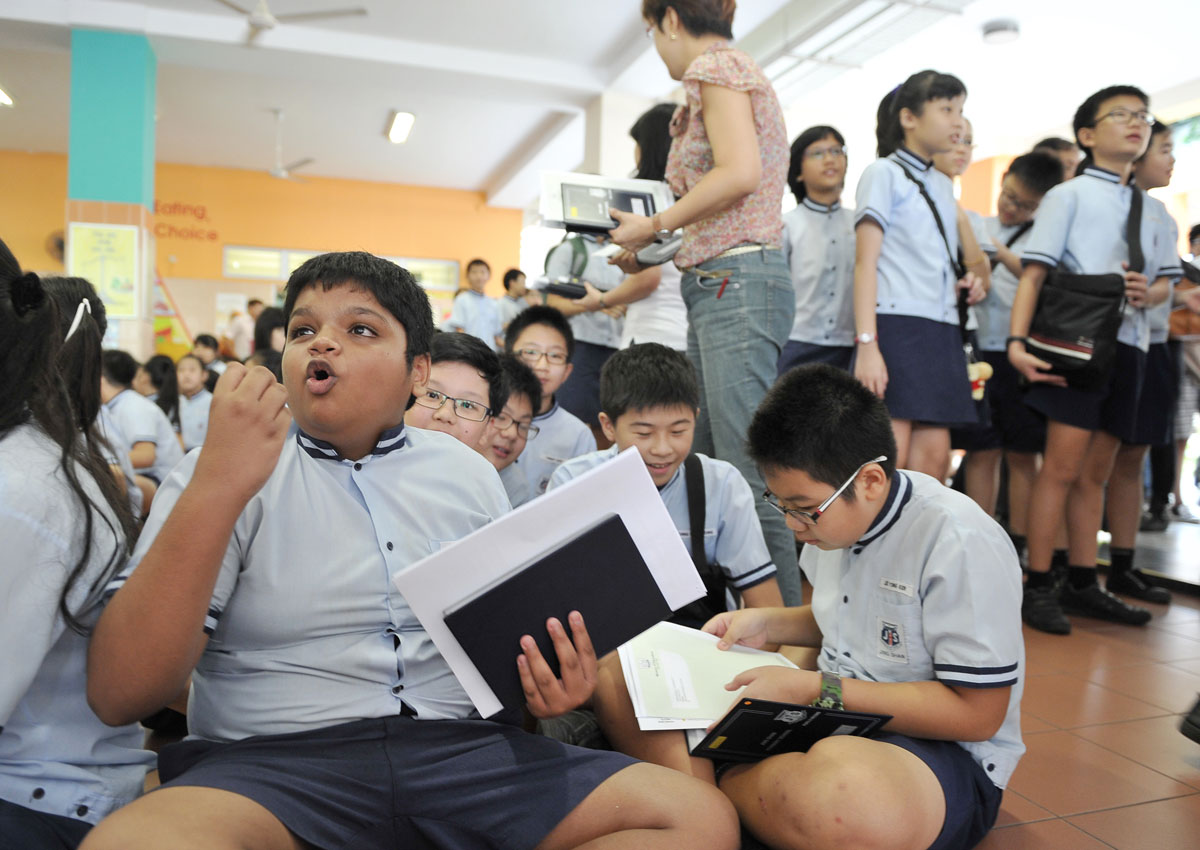Many parents said it is about time that the often-debated Primary School Leaving Examination (PSLE) aggregate score be consigned to history, but some asked why it will be implemented only in 2021.
Another key question is how the new system of grading – using wider bands like A, B, C and D instead of the aggregate score – will affect secondary school admission.
In announcing the major shift in how the PSLE will be assessed, Acting Education Minister Ng Chee Meng (Schools) made it clear the new system will no longer depend on how pupils do relative to each other. He said the current system may have “created unhealthy competition among our young children”.
Most parents agreed that the changes are for the better, but if so, “why can’t it be done faster?”, asked housewife Adeline Low, 43, whose son is now in Primary 1.
“Five years is kind of a long time to wait.” Her child will be among the first batch to take the new PSLE.
But 39-year-old Sim Hsin Dee’s son, who is in Primary 2, misses out by a year. The housewife said: “Other policy announcements, for instance involving the Central Provident Fund or housing, are usually implemented quite fast.”
Some parents also pointed out that it was in 2013 when Prime Minister Lee Hsien Loong first revealed that the major revamp of PSLE grading was on the cards.
But Mr Ng yesterday explained that his ministry will spend the next few years working through the changes carefully, developing and testing the new exam and secondary school posting systems.
This will also give parents and pupils the chance to understand and adjust to the new system. In the process, secondary schools will develop strengths and specialised programmes .
This will allow students to choose a school that is a good fit for them, said Mr Ng.
Mrs D. Fong, 40, who works in the finance industry and has two children in Primary 1 and 2, asked about transparency in school admissions. “How will MOE allocate places to students? If a lot of students get As, how will schools choose? The aggregate score is more clear-cut,” she said.
Several MPs also spoke on the topic of PSLE and school entry, emphasising the need to make it a less stressful process.
Mr Seah Kian Peng (Marine Parade GRC) asked if school admissions will be based more on a pupil’s aptitudes and interests rather than academic grades. Ms Denise Phua (Jalan Besar GRC) said the PSLE revamp is an improvement, but more may have to be done to change the habit of chasing grades.
While calling the changes a good step, education policy expert Jason Tan of the National Institute of Education said there will still be parents bent on getting their children into popular secondary schools.
Said army regular Terry Ng, 38, who has a four-year-old daughter and another in Primary 2: “This perception that the school you go to matters is so ingrained in our society. Look at the number of leaders and scholarship holders from the top schools.
“I don’t think the demand for popular schools will change.”
Added service manager Spencer Lee, 44, who has a son in Primary 1: “Being a kiasu society, parents will still try to compare grades.”
But housewife Dhalia Abdul Rahman, 37, whose sons are in Primary 1 and 4, believes the wider grade bands and the move away from comparing how a pupil does in relation to the rest of the cohort will help cut unnecessary competition and stress. “I hope parents will have less conversations about marks,” she said.
ateng@sph.com.sg

This article was first published on April 9, 2016.
Get a copy of The Straits Times or go to straitstimes.com for more stories.






